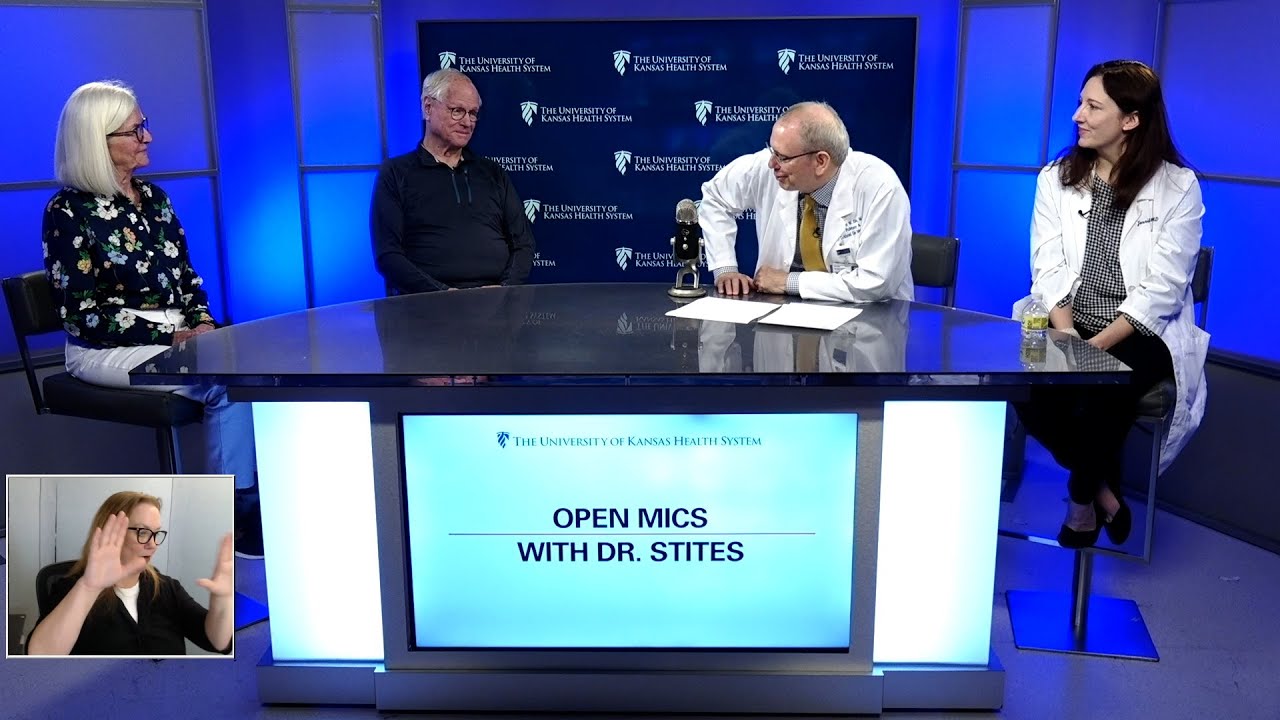Kansas City, Kan- The University of Kansas Health System is treating a total of 20 COVID patients today, 23 last week. Other significant numbers:
• 6 with the active virus today, 9 last week
• 0 in ICU, 2 last week
• 0 on a ventilator, 0 last week
Key points from today’s guests:
Morning Rounds – Updates on News Headlines
Dr. Onalisa Winblad, breast imaging specialist, The University of Kansas Cancer Center
A new government guideline says all women should get breast exams every other year, starting at the age of 40.
This is a step in the right direction.
The task force recommendations are also important for our patients because they do affect payment policies by insurers such as Medicare and Medicaid. Hopefully, this new recommendation also protects access to life-saving screening exams for patients in their 40s.
The health system continues to recommend women get screened every year, not every other year. Often women who get cancer and were screened every other year present with larger tumors, later stage disease and worse outcomes.
Unfortunately, the task force did not endorse the recommendation for screening every year, but medical experts continue to advocate for screening every year. This is important especially in our younger patients.
Breast cancer is somewhat common. One in eight women will develop breast cancer in their lifetime.
Focus Topic – Wellness Screenings
Dr. Steve Stites, chief medical officer, The University of Kansas Health System
Some people wait to see a doctor until they’re sick. But from a doctor’s perspective, we still want to see patients even when they’re feeling well.
A routine checkup, also called a wellness exam, is important because it gives doctors significant information even when the patients aren’t sick.
The more information we have, the easier it is to notice when something seems wrong. These visits are perhaps the most important interaction you can have with your healthcare provider.
Dr. Jennifer McRae, internal medicine specialist, The University of Kansas Health System
It’s very important to have a doctor you know well and knows you well. In that scenario, a doctor can sense when something doesn’t seem right, including something like unhealthy weight loss.
By knowing patients personally through regular interactions, doctors know what activities are important to their patients and can help maintain and protect those activities.
When doctors don’t have full medical histories, it can lead complications with prescribing medications.
Also, knowing patients well provides a better sense of how they’re going to do with lab work and medications.
It’s important to follow guidelines for screenings like colonoscopies, mammograms, cervical cancer and prostate cancer and include primary care physicians in those discussions.
If you’re at certain high risk medications, you might need a different schedule. It’s essential to see your doctor at least once a year.
Jack and Becky Selzer, husband and wife patients
They have been married for 54 years and participate in regular wellness exams.
Jack, 80, and Becky, 77, get their check-ups together.
They see wellness appointments as a way to develop a plan for the next year and keep doing what they love doing – biking.
Telehealth visits are also helpful in between in-person visits.
COVID Updates
Dr. Matt Shoemaker, infectious disease specialist, The University of Kansas Health System
COVID numbers continue to be low due to vaccinations and warmer weather.
We must pay attention to the upcoming vaccination recommendations from the CDC, expected later this summer or fall.
A CDC health alert says there is a potential for new cases of mpox based on a cluster of 12 new cases where nine were vaccinated.
Vaccines aren’t like a light switch to prevent disease but more like a dimmer switch to help lessen the effects of the disease.
source



